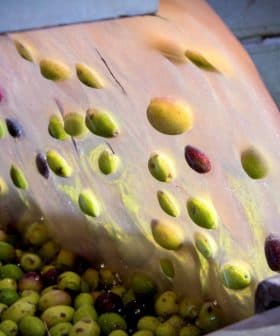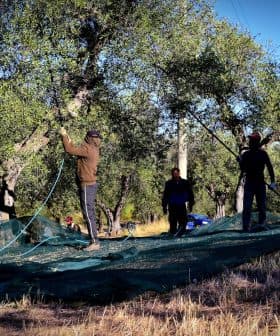Revised Agricultural Policy Aimed at Helping Small European Farmers

The European Commission has proposed changes to the Common Agricultural Policy, including higher payments for small farmers and increased disaster relief funding, in response to protests by farmers across Europe. The proposal, which aims to address the financial challenges faced by small farms, will be submitted for approval to the European Parliament and European Council for implementation by 2027.
The European Commission has proposed changes to the European Union’s Common Agricultural Policy, including higher payments for small farmers, increased disaster relief funding, and streamlining regulations.
The corrective package on the CAP comes after widespread demonstrations by farmers across Europe last year. They protested high production costs, reduced subsidies and the E.U.’s free-trade agreement with Mercosur.
The proposed changes will be submitted for approval to the European Parliament and European Council, where they are expected to pass in time for the new Common Agricultural Policy, which will come into force in 2027.
See Also:Policy Makers, Advocacy Groups Discuss Future of European Food in BrusselsMany of the changes are geared at improving the financial state of Europe’s small farms, such as doubling the annual lump-sum payment to €2,500, adding a one-time lump sum payment of €50,000 to improve competitiveness and new crisis payments for extreme weather events and diseases.
Katia Merten-Letz, a partner at Food Law Science and Partners, told Food Navigator that the measures are necessary to address the growing gap between small farmers and large agribusinesses, but will not “change the farmers’ world.”
The proposal also gives member states greater flexibility to adapt how they implement the CAP in their national strategic plans, exempts small farmers from some environmental rules and allows certified organic farms to automatically meet environmental requirements.
The European Commission further encouraged national governments to develop interoperable digital systems so farmers only need to submit data once.
“We are bringing back pragmatism in the Common Agricultural Policy,” said Christophe Hansen, commissioner for agriculture and food. “Our proposals today strike a balance between the need to have a policy fit for the realities on the ground while safeguarding a certain stability for all agricultural stakeholders.
“The Commission is on farmers’ side, and we are doing our best to cut the bureaucracy so they can focus on what they do best; producing food for all of us while protecting our natural resources,” he added. “I am confident that these measures will deliver concrete results on the ground. I call on co-legislators to adopt this proposal by the end of the year so changes can already reach farmers in 2026.”
Reaction to the announcement has been mixed. Copa and Coegca, the influential unions of European farmers and agri-cooperatives, welcomed the proposal as a common-sense simplification measure and way to enhance European competitiveness.
However, the European Environmental Bureau warned that some of the commission’s proposed measures may unnecessarily remove environmental protections.
“Without sufficient impact assessment or real public consultation, the European Commission has yet again casually done away with nature and climate protections in Europe’s largest budget, the Common Agricultural Policy,” said Théo Paquet, the bureau’s senior policy officer.
“Such short – sighted decisions will not only hinder farm resilience due to the many benefits provided by healthy ecosystems, but also bring the legitimacy of the CAP into question as it strays further from its environmental and climate objectives,” he concluded.









